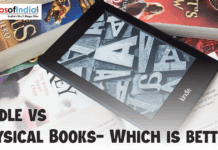Being a part of today’s society means that we are always surrounded by a culture of materialism, where worth is often attributed to our belongings, spending, and ability to flaunt them to others.
However, there is an alternative way of living that provides freedom, fulfillment, and significance that goes beyond monetary gain. It’s known as minimalism. The constant quest for new possessions and purchases is known as consumerism and never ends. With the next purchase, it promises bliss around the corner. But the excitement of a new purchase soon wanes, leaving us constantly yearning for the next big thing.
Minimalism: What is it?
Being minimalist is a lifestyle choice. It involves removing anything that diverts us from the things we value most and purposefully promoting them. Living with less isn’t the only goal; you also need to ensure that the things you have are useful, long-lasting, and of good quality. Minimalists often own fewer things because they wish to spend more time concentrating on the things that matter, such as family, friends, fitness, health, and well-being objectives (if applicable), interests, and hobbies (including creative pursuits).
They don’t purchase things just because they’re trendy or everyone else has them. A thing won’t enter their house if it isn’t needed! Because minimalists know the exact amount of space that each item takes up in their houses, they can remove unnecessary litter, making cleanup simple.
It’s unlikely that something will be utilised frequently anyway if it doesn’t fit into one of the designated storage spaces. Being minimalist frees us mental and physical space, enabling us to concentrate on the things that genuinely improve our lives. Removing the wish for materialistic things from our affections allows us to find a better way of living. Making more space for joy rather than taking it away is the aim of minimalism.
Shortcomings of Minimalism
To achieve the minimalist lifestyle, more waste is initially created. After Japanese consultant Marie Kondo’s popular self-help book The Life-Changing Magic of Tidying Up (also a Netflix series titled Tidying Up with Marie Kondo), there was a surge in people purging their homes and lifestyles to adopt the minimalist lifestyle.
However, this led to vast amounts of clothes and household items being thrown away or donated to second-hand shops, where 84% of donated clothing ends up in landfills anyway. The process of becoming minimalist is, therefore, actually very wasteful – just because the clutter is no longer visible in our homes doesn’t stop it from polluting somewhere else.
The moral ethos of minimalism can create a toxic environment in which people only have what they need and are villainised for indulging in things they simply enjoy. In a capitalist society that already perpetuates the harmful lifestyle of the ‘constant grind’, causing people to feel guilt for taking time off work, minimalism can contribute by suggesting that things purchased for enjoyment are a waste.
Consumerism: What is it?
The attitude of consumerism encourages a never-ending need to obtain more goods. It is fuelled by marketing and advertising, which have persuaded us that happiness requires new possessions. This might result in materialism when you place excessive importance on your possessions. Minimalism’s antithesis is consumerism. While minimalism prioritises experiences above tangible possessions (like taking a trip), it places a high value on the things essential to you, like your automobile.
The adverse consequences of consumerism
Stress and dissatisfaction are two of consumerism’s detrimental consequences on us as it takes away from our time to appreciate what we already have. Because we don’t have time to appreciate what we already have, the never-ending cycle of consumption, waste, and new purchases causes stress and dissatisfaction.
Additional storage space is required to hold all belongings, which means we now have to cope with even more clutter daily. Consumption encourages us to purchase unnecessary items, which ultimately leads to an insatiable want for more. The ideology of consumerism encourages a never-ending need to acquire more items!
The environment is impacted by consumerism.
The attitude of consumerism encourages a never-ending need to obtain more goods. It is motivated by the idea that having more and better possessions would make us happier, which makes us purchase items we don’t need or utilise.
Both our environment and ourselves suffer from consumerism. We don’t have time to appreciate what we already have, which leads to tension and discontent. Throwing away unwanted objects consumes resources and takes up room in our houses. It pushes us to make unnecessary purchases, which reduces our available funds for other purposes.
Discipline is necessary for a minimalist life.
Living with fewer possessions is not the only goal of minimalism. By creating space for the things that are most essential to you, you may find happiness in less. Because minimalists live lives with less stress, clutter, and distractions, it’s worth the discipline and dedication required. Additionally, they have more time for the things that count. It may be volunteering at an animal shelter, travelling, or spending time with family and friends.
Living in a minimalist home with only the most basic furnishings is not what minimalism is all about. It involves removing items from your life that don’t have personal significance or worth. These might be material things like clothing or literature or abstract ideas like work-related pressures like emails. At first, these items can appear luxury, but as one eliminates them individually, one can quickly discover how much better we feel when they’re not a daily burden.
Furthermore, this does not imply a lack of anything. No matter what choice we make about our spending patterns, there will always be some kind of sacrifice because everything has a time and/or money cost. Ultimately, determining if anything offers enough value to warrant paying whatever price is necessary to obtain this item or item.
Being minimalist is a lifestyle choice.
A minimalist lifestyle prioritises the essentials. Making the most of what you currently have is more important than depriving yourself. Although minimalists don’t have many possessions, they ensure that everything has a purpose or significance. And minimalism isn’t dull!
Although minimalism inspires us to simplify our lives by eliminating superfluous items and clutter, this does not imply that we do not enjoy ourselves. It simply means that we focus our time on the most important things rather than attempting to purchase pleasure with worldly goods, which is impossible anyway. Minimalists don’t always live in cramped quarters with only one chair. Rather than making impulsive purchases, they focus their financial decisions on what makes them happy.
Conclusion: The Radical Act of Minimalism
A dramatic act of defiance against the social pressure to continue purchasing to be happy, choosing minimalism over consumerism is more than just a lifestyle decision. By making fewer choices, you may break free from the never-ending cycle of clutter and acquisition and make room for a more purposeful, happy existence.
In a society where materialism rules, minimalism provides a welcome change that promotes happiness, independence, and a closer bond with the things that count. Making less is a strong decision for a better future since it is more sustainable for the earth and for you.




